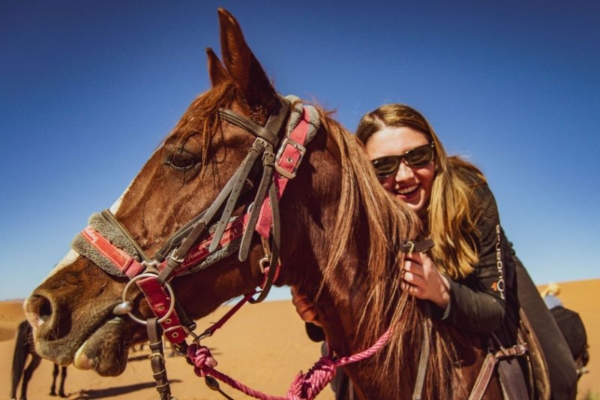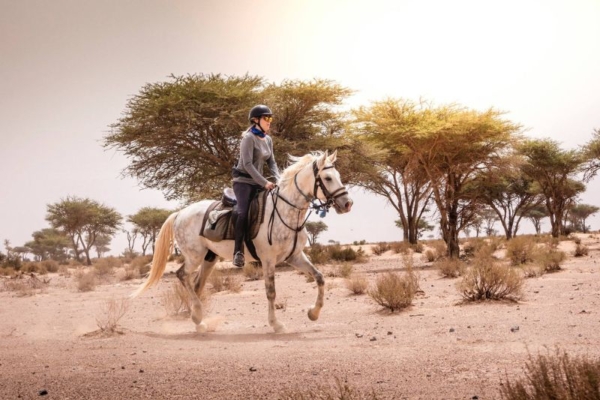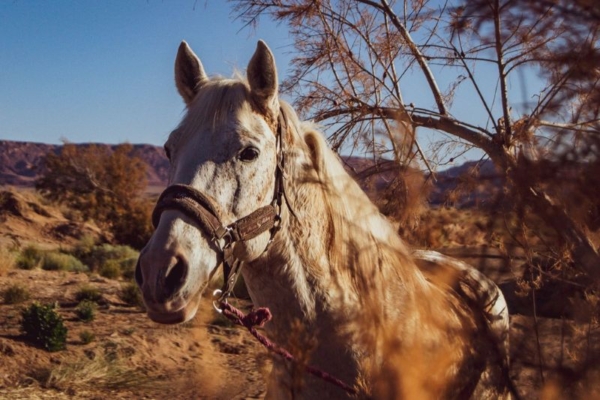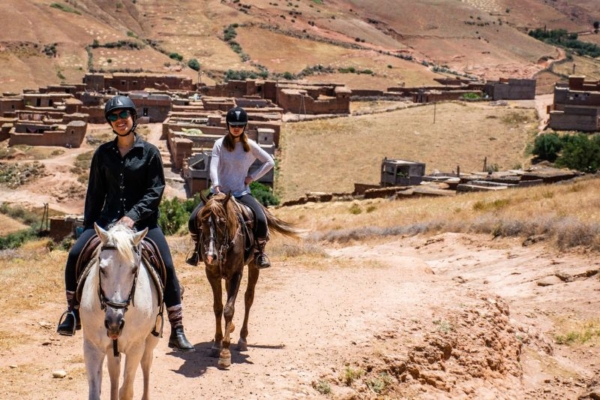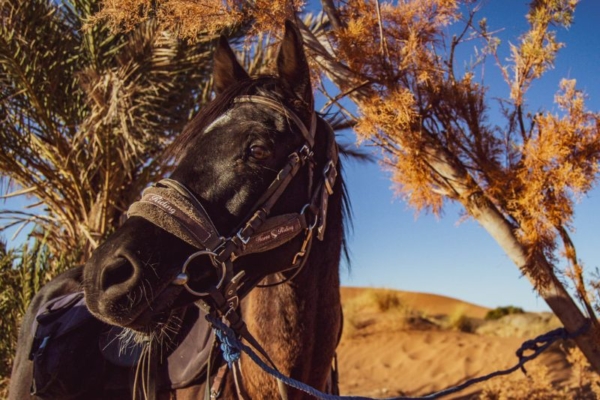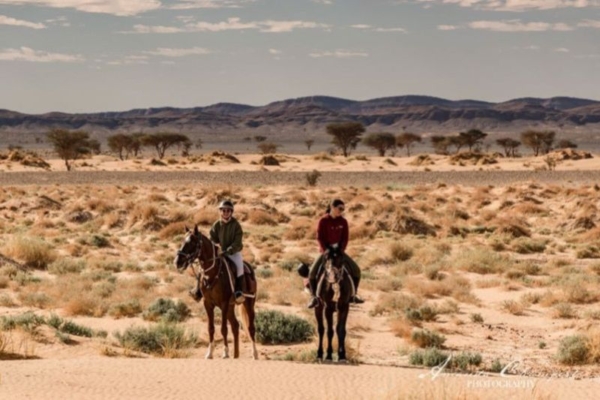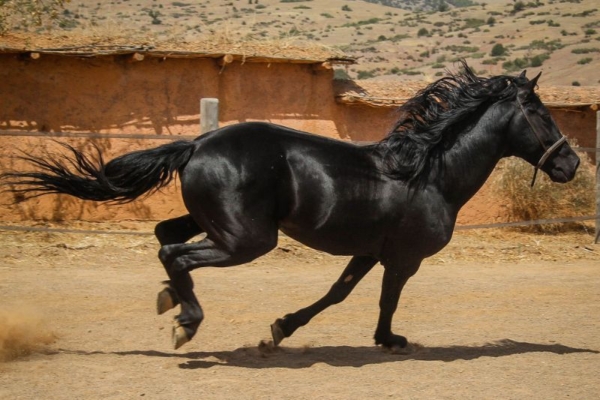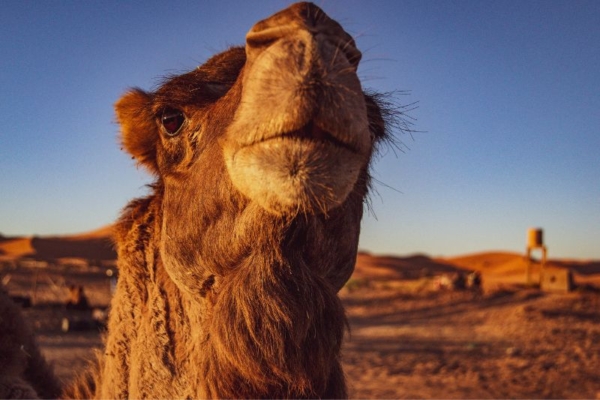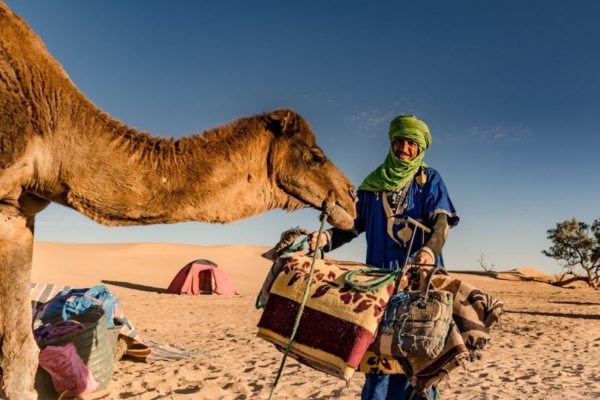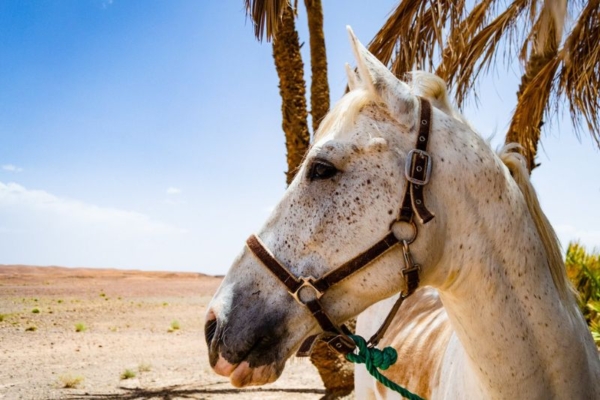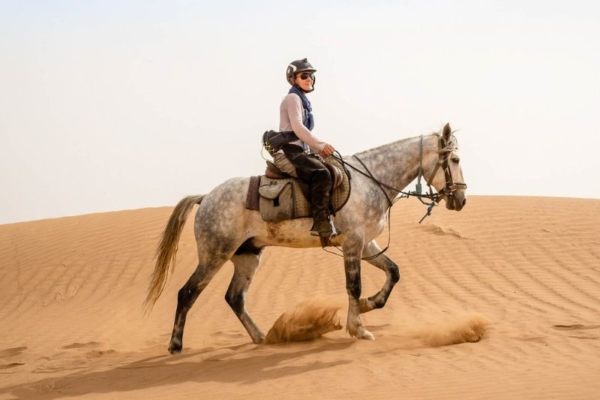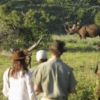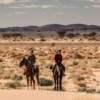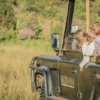Are you thinking of travelling to Morocco? Exploring Morocco on horseback offers a unique perspective on the country’s diverse landscapes and rich cultural heritage. Whether you’re riding through the mountains, along the coast, or across the desert, a horse safari in Morocco promises an unforgettable adventure filled with scenic beauty and cultural immersion.
We take care of everything from the time you book to when you leave your heart behind, including a full Morocco Itinerary complete with accommodation, transportation and incredible riding. On our trail rides, you get to fully immerse yourself in the Moroccan culture, but experiencing the unique horsemanship, cuisine, hospitality and desert tours in Morocco. Your itinerary for Morocco will also include some unique things to do, such as visiting the local Berber villages, historical sites in Morocco and remote view points that few people get to see.
Once you’ve booked your horse riding holiday in Morocco, you’ll get a detailed itinerary and Morocco Travel guide that includes what to pack for Morocco, Morocco Weather and Seasonal Information, Travel Safety Tips for Morocco, Insurance Information as well as other travel tips for your Moroccan adventure. In the meantime, we’ve put together some information to help you plan for your next equestrian adventure.
Read Our Blog on the Best Places to Visit in Morocco
Here Are Our Top Morocco Travel Tips
P
A
C
K
I
N
G
What to Pack for a Trip to Morocco
- Riding Boots for Morocco: bring short riding boots that are comfortable for both riding, and hiking as you might need to lead your horse over tricky terrain
- Riding Hat for horse safaris: While helmets are not compulsory on all rides, we recommend wearing one. Bring a well-fitting ventilated helmet to keep you safe on the trail
- Riding Clothing for horse safaris: Saddle sores are not uncommon and often surprise the most experienced of riders used to long hours in the saddle. Wear comfortable clothes that you are used to riding in – don’t wear new clothing for the very first time
- Fabric Choices: It can get very hot in the desert, so to avoid feeling sweaty and sticky all the time, try to stick to natural fabrics, especially cotton or technical fabrics designed for warm weather and quick drying
- Layers: Dress in layers as days tend to get very hot & evenings can be very cold, especially in Winter months. Thermal underwear is recommended for the High Atlas.
- Sun Protection: Sunscreen and a hat are also important to protect against the desert sun. Bring SPF40+ and make sure your lip balm also contains SPF
- Plan for the Weather: Morocco’s climate varies, so plan your trip according to the season. Spring and autumn are generally the best times for horse safaris in Morocco, but remember the weather can be unpredictable. Always bring a light windbreaker, clothing that offers sun protection, and warm layers for cool mornings and cold nights in the desert.
- Other Clothing: Morocco’s dress code is relaxed for tourists. However, it is a largely conservative nation and therefore it is considered respectful to the Moroccan culture to follow suit. We recommend long loose-fitting trousers, jeans and tops that cover the shoulders when not riding. When visiting temples and museums, we recommend bringing a scarf or shawl with you to cover your shoulders
- Be Prepared: Bring a small first aid kit with essentials like band-aids, antiseptic wipes, pain relievers, and any personal medications you may need. It’s also essential that you pack things like a portable battery charger, a water bottle, and your sense of adventure
F
I
T
N
E
S
S
How to Get Fit For a Horse Riding Holiday in Morocco
- Ride: You need to be physically fit for long hours in the saddle in the African sun and at high altitudes. You need to be confident riding in open spaces and in control at a fast pace. These holidays are not suitable for nervous riders, but are highly addictive to experienced riders looking for adventure. Make sure that you get in some longer trail rides before your adventure, ideally riding at a faster pace and practicing riding in a two-point canter
- Getting On and Off: You need to be able to mount and dismount your horse whilst on rocky paths so as to assist your horse during hard climbs and tricky descents. Make sure you’re used to hopping off and getting back on using a handy rock, or tree stump
- Get fit: Some trails can be challenging, so being in good physical shape will enhance your experience. Regular exercise, particularly activities that improve your cardiovascular fitness and core strength, will help you handle the demands of long hours in the saddle
- Hike: Know that on some of the trails you’ll need to get off to lead your horse over tricky terrain. This might mean steep inclines or descents, over rocky ground, deep sand or very narrow trails, so being steady on your feet will be advantageous
- Stretching: Incorporate stretching exercises into your routine to improve flexibility and reduce the risk of soreness or injury while riding
”What an epic adventure! Just got back from a horse safari in Morocco. What an epic adventure! The most beautiful Arab Barb stallions, incredible guides and the landscape was off the charts! AHS was so on it, responsive and I was not unsure about any element before I set off. This will be the 1st of many adventures like this I am certain of it! Thank you Gals - you totally rocked it.
Jeanne Watson, Essouira Coastal Trail - Morocco
M
I
N
D
S
E
T
Getting into the Morocco Mindset
- Cultural Sensitivity: Respect local customs and traditions, especially when visiting rural areas and Berber villages. While on a horse riding holiday in Morocco, dress modestly to respect local norms
- Taking Photos: Always ask for permission before taking photos of people, especially in rural and tribal areas
- Learn the Lingo: Embrace the Berber culture by chatting to your guides and learning a few basic phrases in Berber or in French
- Stay Open-Minded: Be prepared for different cultural practices and living conditions. Embrace the adventure with an open mind and a positive attitude
- TIA – “This is Africa”: A common phrase you’ll hear when travelling to Africa. Here we have an ever-changing environment: power failures, water and fuel shortages, temperature fluctuations, and other uncontrollable / unplanned situations do occur. You will need to remain flexible, understanding and good-humoured. “African time” can be difficult and a bit frustrating for those who are used to a very structured life, but it’s all part of the adventure!
- Patience and Flexibility: Safaris can sometimes involve unexpected delays or changes in plans. Being patient and flexible will help you enjoy the experience more fully
- Travel Safety in Morocco: Petty crime is common, especially in tourist areas like the medina quarter of towns/cities and on beaches. Crimes include pick-pocketing, bag snatching and drive-by motorcycle theft of visible jewellery and handbags. That being said, these cities and markets are incredible to explore and offer some amazing insight into a modern life in Morocco
T
R
A
V
E
L
Travel Essentials for Morocco
- Travel Insurance: It’s vital to get travel insurance for Morocco. As you will be riding every day, it’s crucial that you have a policy that includes: horse-riding,evacuation and repatriation should any emergencies arise on your trip. Please ensure that your insurance also covers unexpected losses or expenses e.g. lost luggage, stolen cash and credit cards or cancelled/missed flights
- Vaccinations and Health Precautions: Check with your doctor about any necessary vaccinations or health precautions for travelling to Morocco. Carry a basic medical kit including items like rehydration salts, anti-diarrhoea medication, and any prescription medicines
- Passports and Visas: Travellers from many countries do not need a visa to visit Morocco for a period of up to 90 days. Currently, citizens of Australia, New Zealand, the USA, the UK, the EU and Canada, among many others, do not need a visa to travel to Morocco, provided they have a passport of usually six months’ validity and an onward or return ticket
- Documents: Keep copies of important documents such as your passport, travel insurance, and emergency contact information
- Money: Carry some local currency (Moroccan Dirhams) for small purchases and tips. You can easily convert USD, GBP, EUR and other currencies to Dirhams at the airport or local banks in Marrakech. Morocco is a cash based county, so do have small notes on hand for gratuities, local purchases and drinks
If you’re looking for an adventurous riding holiday that crosses mountains, deserts and sees you riding along dream-like beaches in Africa, check out our collection of Horse riding holidays in Morocco.
Chat to one of our horse safari experts, and we’ll help you find the best horse riding holiday.

